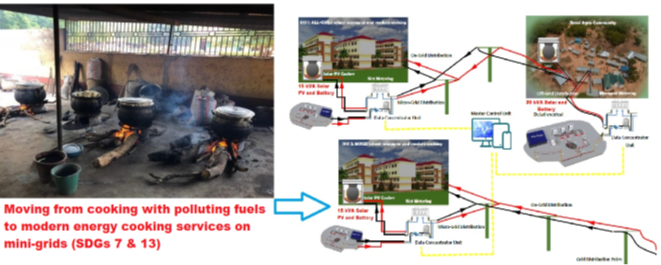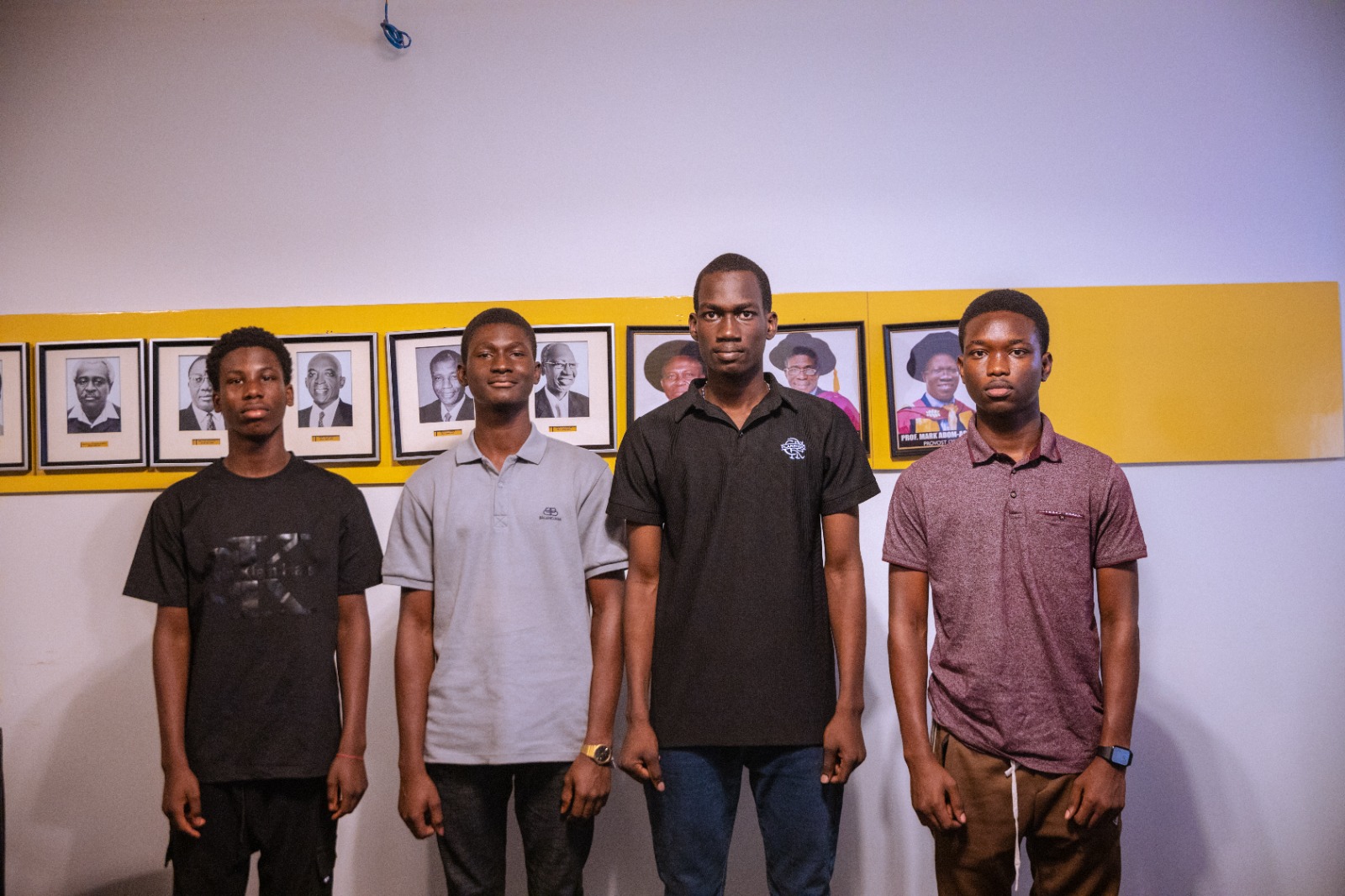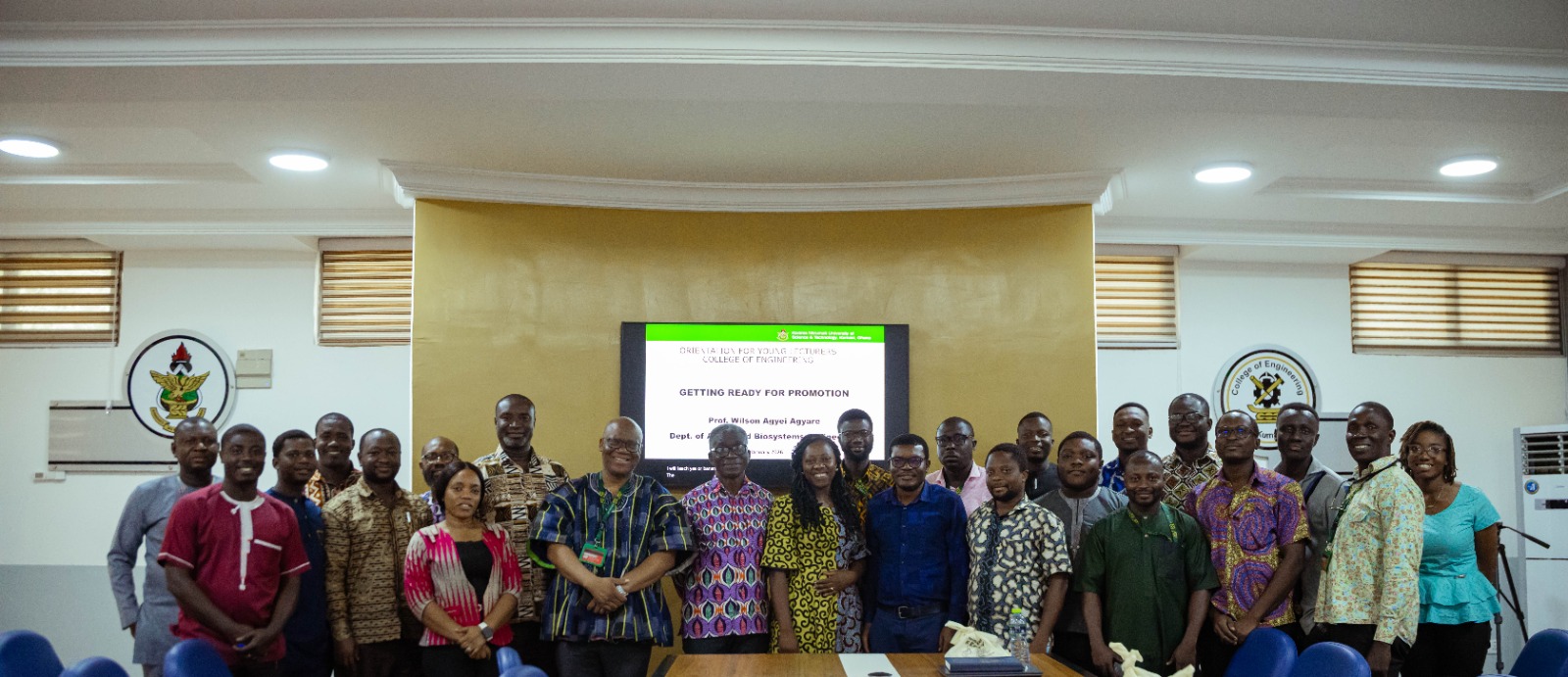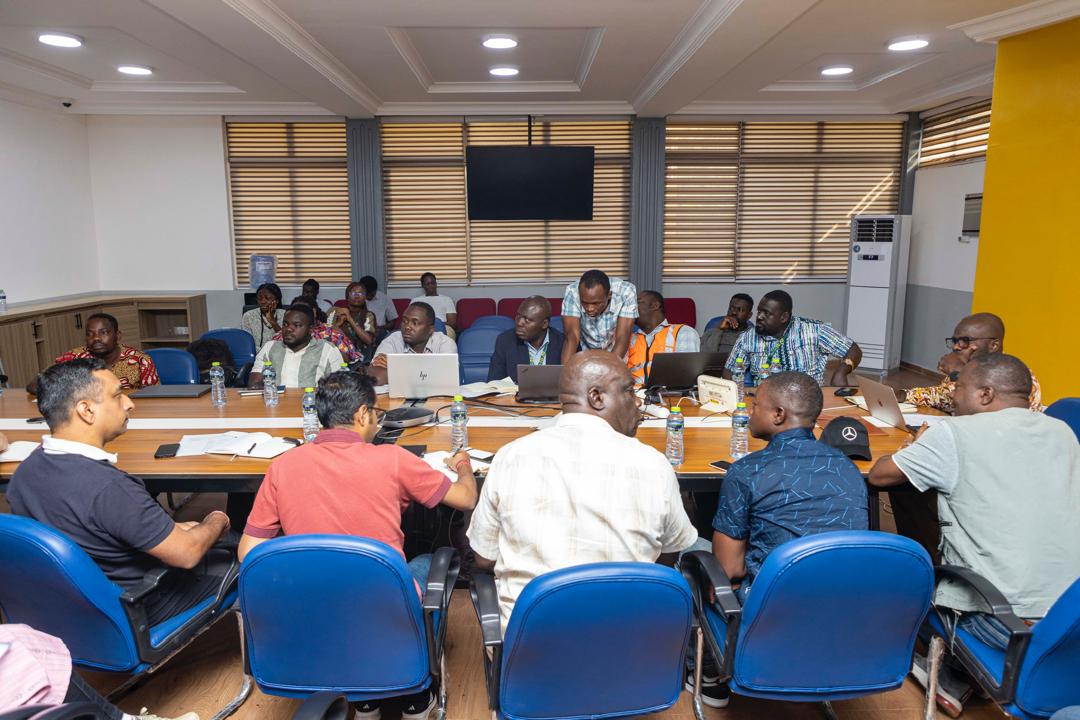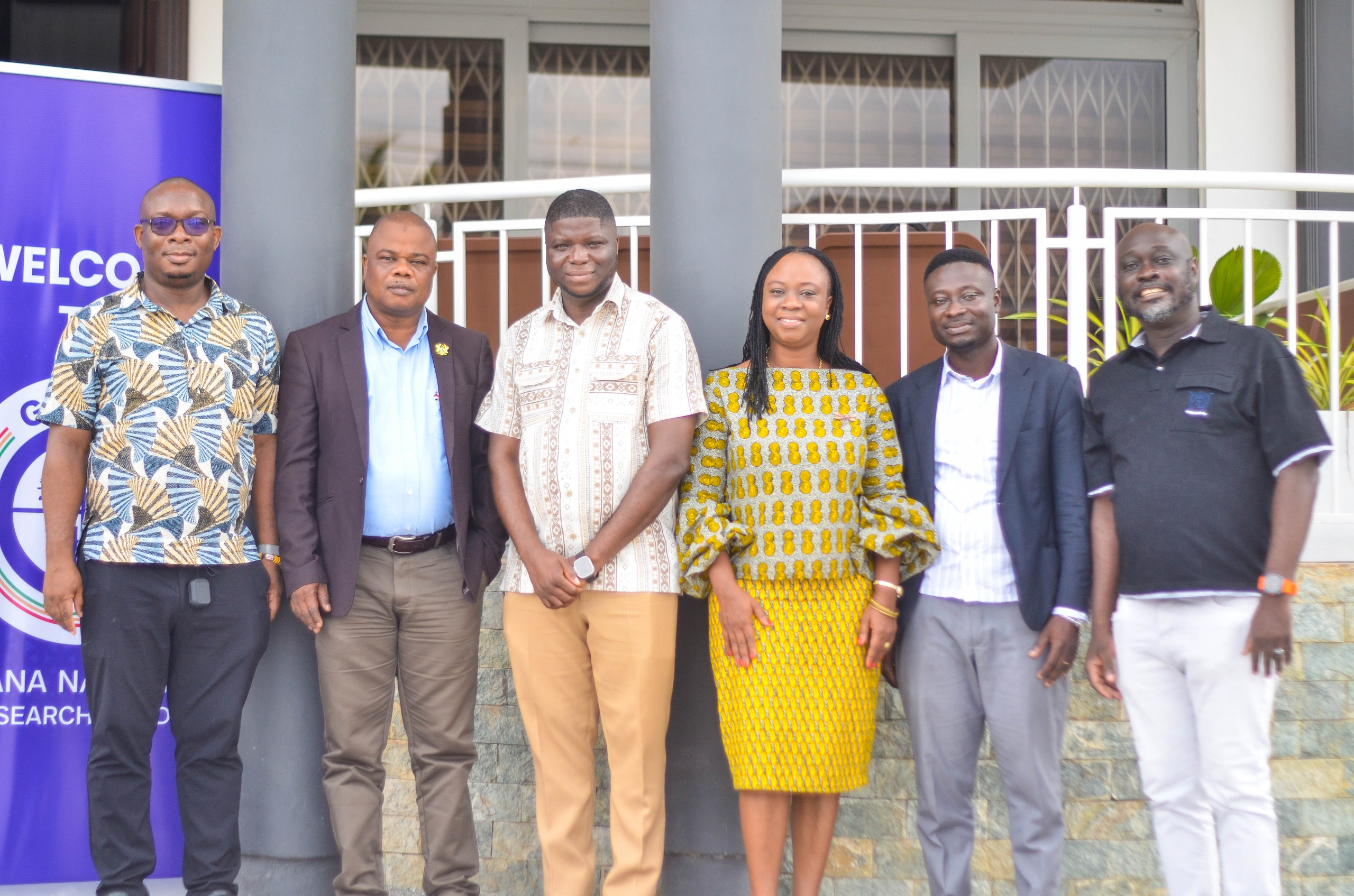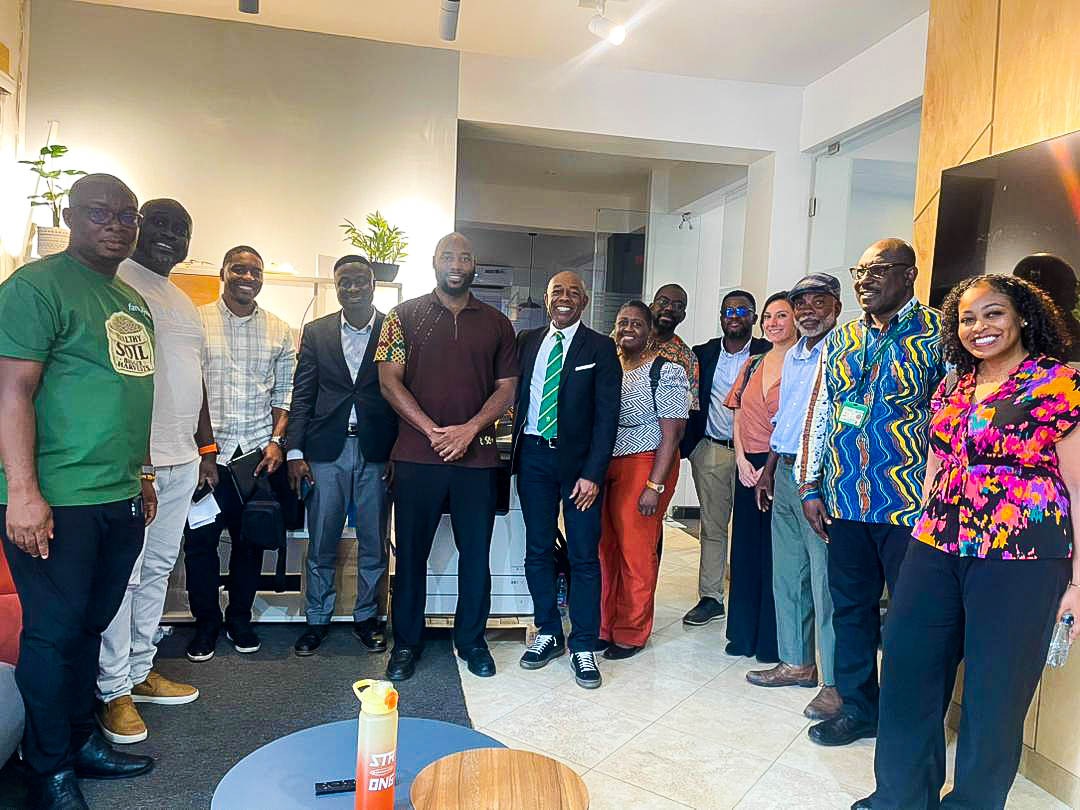The Sustainable Energy Service Laboratory at the Department of Mechanical Engineering, KNUST, in collaboration with Consortio Limited-UK, IBECCS-UK, and EEK Consults & Electricals Limited-Ghana, have received a grant from UKRI to undertake research project on Institutional & Community Solar Cooking on Mini-grids in Ghana under a project dubbed: “Ghana GOALS - Generation, Operation, and Access to Energy at Lowest Carbon and Cost Solutions”
The two-year grant is part of the Energy Catalyst Round 9 Competition, which is an Innovate UK programme with funding from the Foreign, Commonwealth and Development Office (FCDO) and the Department for Business, Energy & Industrial Strategy (BEIS) under the UK Government’s Ayrton Fund for clean energy innovation.
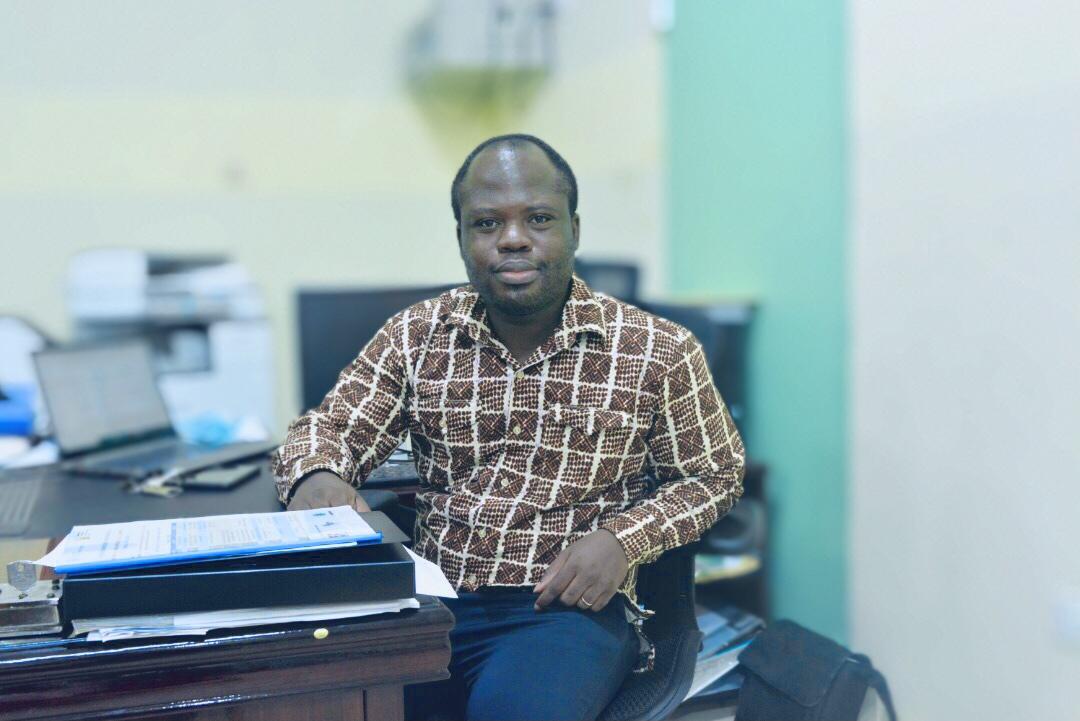
Ing. Dr. Richard Opoku, the PI for KNUST, elaborating on the project indicated that the “Ghana GOALS project will create self-sustaining smart energy communities with access to clean renewable energy and innovative cooking technologies, resulting in improved air quality and better working conditions, especially for women and girls. Ghana GOALs will test a new concept for modern cooking, reducing the reliance on foraged firewood, charcoal and kerosene. This will be combined with the creation of mini-grids, using solar photovoltaic panels (PV) and storing energy overnight in batteries. The cooking on mini-grid project will be trialled at some selected senior high schools (SHS) and one off-grid community in Ghana to evaluate different business models for replication. For the cooking trials, two senior high schools will be selected from a potential pool already identified: an all-girls school and a mixed school. Gender equality and diversity will be a key factor, and educational materials created will help change preconceptions related to cooking”.
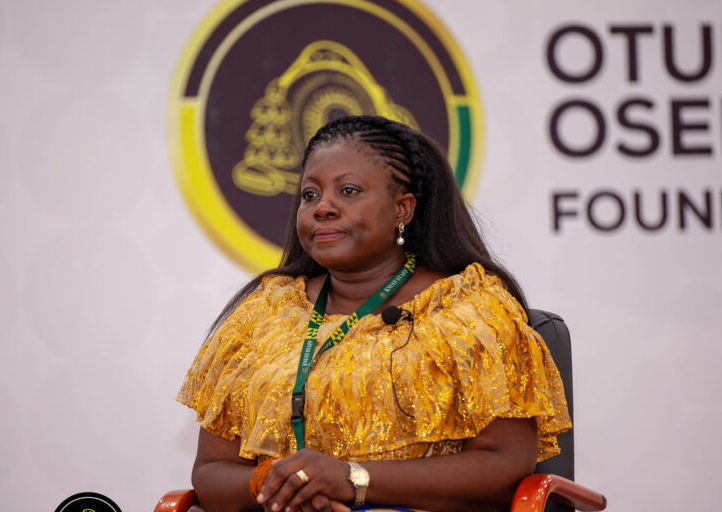
Dr (Mrs) Eunice Akyereko Adjei, the co-PI for KNUST, also indicated that: “Using modern cooking techniques will free up time spent in collecting firewood and managing dirty stoves by women and their children. Since 70-80% of cooking is wood or kerosene fired in Ghana, reductions in carbon and smoke emissions will also be significant with environmental and health benefits for women and their children who cook with polluting fuels like charcoal & fuelwood”.
EEK Consults & Electricals will be the private company in Ghana to undertake the construction of the mini-grid systems with smart net-metering and AMI solutions.
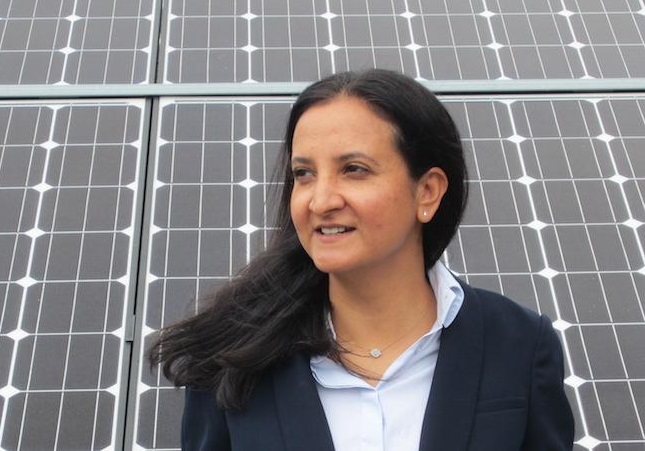
Rajvant Nijjhar, CEO of Consortio Limited and the Project Lead, expressed her excitement for winning this project grant: "These are exciting times to build upon the excellent work already being carried out by the KNUST team under the leadership of Ing. Dr. Richard Opoku. This work on mini-grids, and clean cooking will provide much needed clean, green and affordable energy access to schools and local communities across Ghana. We look forward to the UK-Ghana cross collaboration and building upon the UN's Sustainability Development Goals as well as the recent COP27. On a personal note, 40 years ago, my father taught at the KNUST Department of Mechanical Engineering, which is the research lead on this project. I am looking forward to returning to the Country of my birthplace and to the campus in which I grew up. We hope to make significant progress in green energy and clean cooking here in Ghana and to take these solutions to the rest of Sub-Saharan Africa.



